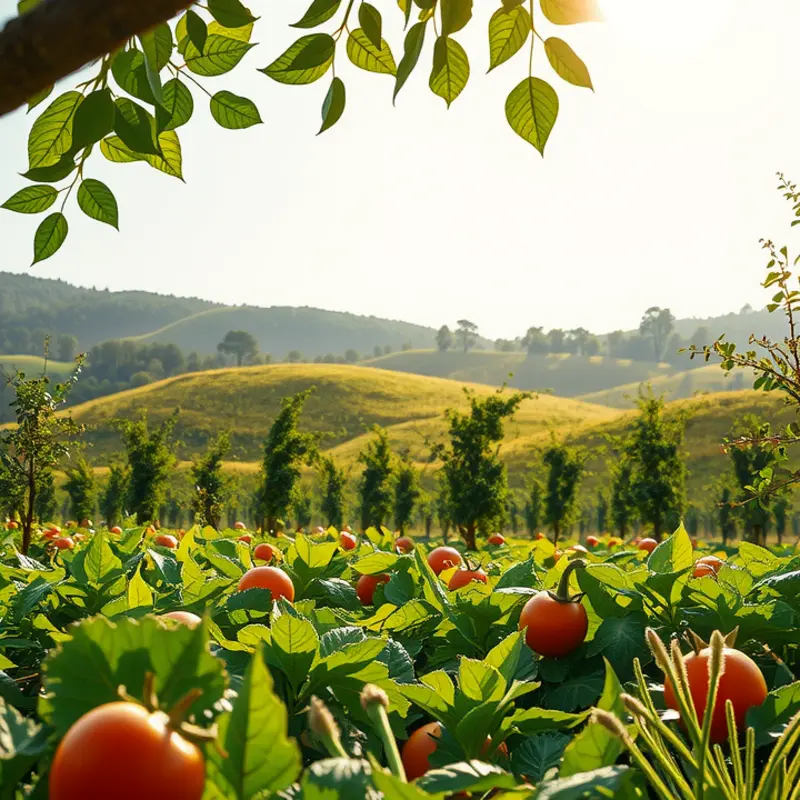The debate over fresh versus frozen vegetables has long been a source of confusion for health-conscious consumers. Many believe that fresh vegetables are always the healthier option, but this belief may not hold true in all cases. Understanding when to choose fresh and when to opt for frozen is essential for making informed dietary decisions. From nutritional content to convenience, each option presents unique benefits that can contribute to a healthy diet.
Nutritional Value: Fresh vs. Frozen

The debate over whether fresh or frozen vegetables hold more nutritional value is nuanced. Fresh vegetables are often touted for their superior taste and texture, but their nutrient content is highly dependent on time and temperature. From the moment a vegetable is harvested, its nutritional value begins to decline. This can occur through exposure to light, heat, and air during transport and storage.
In contrast, frozen vegetables are typically harvested at peak ripeness and quickly blanched to halt enzymatic activity. This process, followed by flash freezing, helps lock in nutrients. In some cases, frozen options might retain more vitamins and minerals compared to their fresh counterparts, which may have spent days in transit.
The effects of time on fresh vegetables can be significant. For example, spinach kept at room temperature can lose up to 90% of its vitamin C after just 24 hours. On the other hand, when spinach is frozen, it retains a high percentage of its original vitamin content even after several months. Similarly, green beans can lose considerable vitamin B2 content over time if not consumed soon after harvest.
In terms of temperature, refrigeration slows nutrient loss but doesn’t completely prevent it. Leafy greens and cruciferous vegetables, while rich in vitamins and minerals, can see reduced antioxidant activity after prolonged refrigeration. This is where the advantage of frozen vegetables may come into play. The freezing process quickly brings down the temperature, reducing the time that nutrients are susceptible to degradation.
Nonetheless, it’s essential to consider how these vegetables are handled before reaching the freezer. The blanching process, often used before freezing, involves briefly boiling vegetables and then plunging them into cold water. While this step is crucial for maintaining color, texture, and flavor, it can lead to some water-soluble nutrient losses, particularly in vegetables like peas and broccoli. Despite this loss, the net retention of nutrients often remains beneficial over extended storage durations.
The method of cooking also plays a role in nutrient retention. Steaming vegetables—whether fresh or frozen—helps preserve water-soluble vitamins. Opting for minimal cooking methods can aid in preserving maximum nutrient content, complementing other eco-smart kitchen practices.
Ultimately, both fresh and frozen vegetables can be part of a healthy, balanced diet. The choice might come down to convenience, accessibility, and personal preference. Understanding the nutrient retention process enables better-informed decisions, helping balance nutritional needs with lifestyle considerations.
Practicality and Shelf Life

When it comes to increasing the intake of vegetables, both fresh and frozen options offer distinct practical advantages that can complement any lifestyle. Understanding their differences in terms of convenience, shelf life, and contribution to food waste can help consumers make informed choices.
Convenience is a primary factor affecting many people’s vegetable choices. Fresh vegetables often require more preparation time, including washing and chopping, which make them less appealing for those with busy schedules. On the other hand, frozen vegetables are often pre-cleaned and pre-cut, ready for quick cooking. This reduces preparation time significantly, making it easier for people to include vegetables in their meals when time is tight.
The shelf life of fresh versus frozen vegetables also differs notably. Fresh vegetables have a relatively short shelf life, frequently wilting or spoiling within a week if not preserved properly. In contrast, frozen vegetables can last for months without losing their nutritional value, making them a reliable option for long-term storage. This longevity not only ensures that a variety of vegetables is available year-round, but also guarantees that their nutritional quality is maintained through efficient freezing techniques.
Food waste reduction is another critical consideration in choosing between fresh and frozen produce. Due to the shorter shelf life of fresh vegetables, they are more prone to spoilage if not consumed promptly, contributing to significant food waste. Frozen vegetables, with their extended shelf life, can be stored until needed, cutting down on spoilage and waste. Incorporating frozen vegetables is an effective way to manage household food supplies and reduce waste.
To balance between fresh and frozen vegetables, consumers can adopt strategies like using fresh produce for items that best benefit from freshness in flavor and texture, such as salads and raw snacks. For dishes where texture is less critical, such as soups, stews, or stir-fries, frozen vegetables can be used. This not only optimizes meal variety but also ensures diverse nutrient intake with minimal waste.
Combining the benefits of both fresh and frozen vegetables in your diet requires understanding their unique offerings and practical use cases. You can also consider low-waste cooking practices to reduce food waste and maximize nutritional value. With thoughtful planning, both fresh and frozen vegetables can be seamlessly integrated into everyday meals, promoting both health and sustainability.
Final words
Ultimately, the choice between fresh and frozen vegetables depends on nutritional content, personal preferences, and lifestyle factors. Fresh vegetables offer vibrant flavor and textures but can lose nutrients over time or be less accessible in certain seasons. Conversely, frozen vegetables retain their nutritional value and can be stored for extended periods, making them an excellent option for convenience and minimizing waste. Incorporating a combination of both into your diet can maximize health benefits while ensuring you have a variety of options available.








